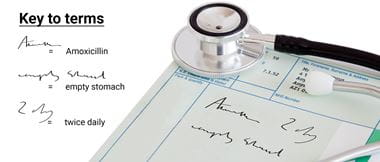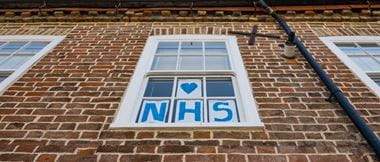
Do NHS patients want electronic medical records?
There's mixed feelings about going digital.
Politicians have been talking about pushing towards a paperless NHS – in which patient records, appointment notices, prescriptions and other documents are shared electronically rather than physically – for at least 15 years, and probably longer than that.
However, the prevalence of mobile technology and cloud-based systems means this long-held vision is now more achievable than ever.
The potential benefits of digitising medical records are clear, as paper-based systems have a number of inevitable inefficiencies. There is unnecessary duplication, documents are very easily lost, and any transfer of information between two parties not carried out in person will always involve a delay.
But paper still plays a large role in the way the NHS runs in 2016, and there are some significant obstacles to overcome. Leaving aside the managerial challenges that accompany any major change in an organisation the size of the NHS, arguably the biggest barrier is not technological – it’s human behaviour.
The biggest question is whether patients will be prepared to transition to paperless contact with the healthcare service. For this to happen, all patients will need to have access to the information, the ability and inclination to use the technology involved, and the trust in the system.
It’s easy to come up with many examples where an electronic alternative to paper currently wouldn’t be a workable option. Take a care plan for an elderly patient for instance – the older demographic still has relatively low levels of engagement with technology and so digitising these documents would cause significant access problems for large numbers of people.
Of course, it’s easy to single out elderly patients, but a preference for paper documents also exists with much younger generations – especially when it comes to healthcare. Many feel comforted by the simplicity of paper documents and like the fact that in an emergency there is no need to interact with technology or rely on a digital system.

These attitudes are likely to change over time – the past 10 years has seen a seismic shift in the way people use technology in their everyday lives and it’s easy to imagine it will be much more ingrained in another 10 years’ time.
As the current young generation of ‘digital natives’ grows up to become the majority users of the health service, the likelihood is that they will come to demand digital access, and this will be a powerful driver of change.
In the United States, where profitability is more of a motive than it is in the UK, things are moving faster and approaches like digital consultations are gaining ground. However, this has taken significant financial investment and risk-taking on the part of healthcare providers.
But, while a fully digitised health service in the UK remains a distant goal, I believe we will see some exciting innovations in the much nearer future which will bring real benefits to those patients ready to engage with technology.
We’ve already seen the prescription service go partially electronic, and the option of web consultations with GPs is on the horizon. Ultimately it will be a process of gradually building on these advances that will allow the potential of digital technology to be fully realised in the health service.
Find out more about Brother Spark Healthcare Summit





